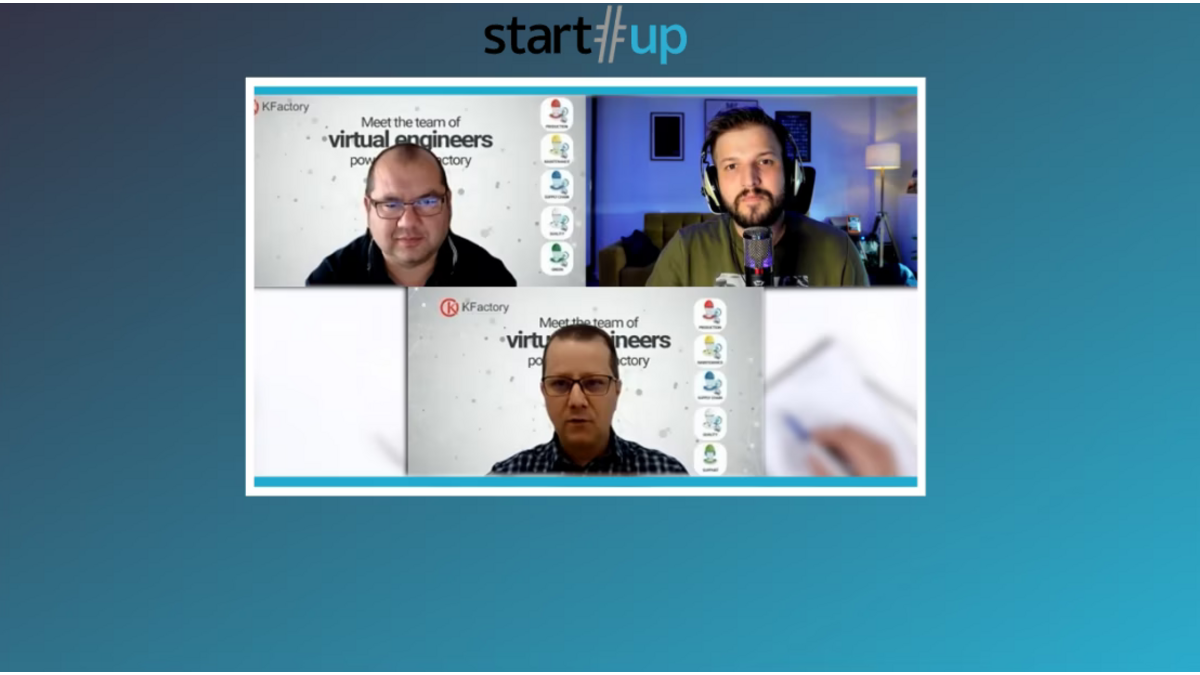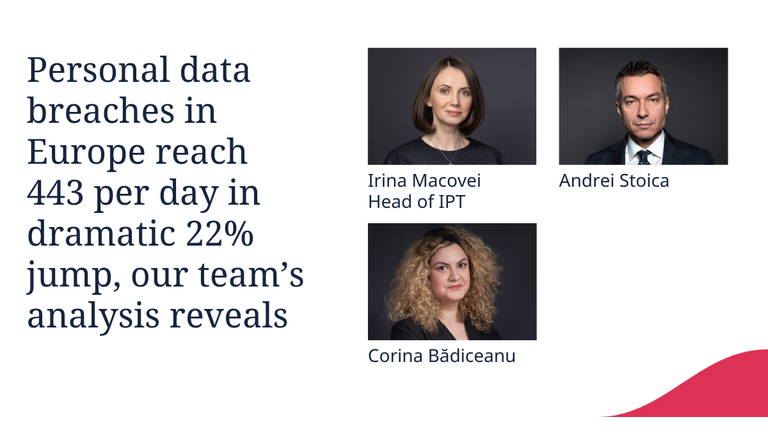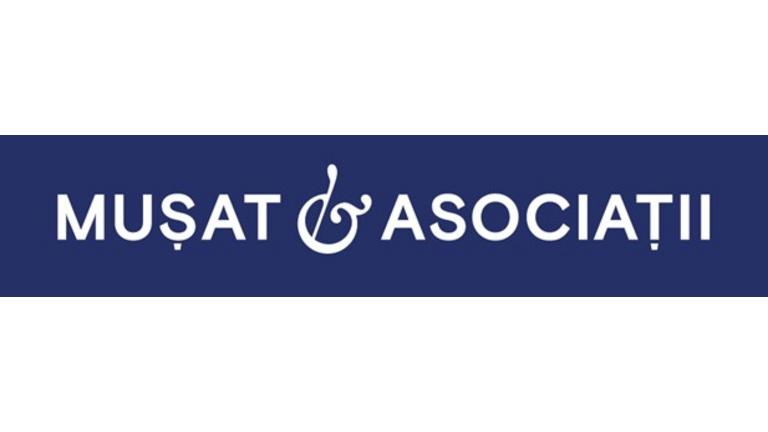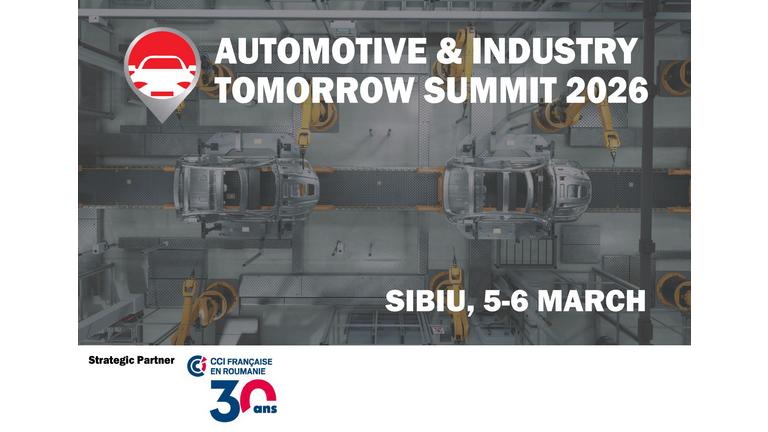Membres
How does Rombat uses the technology of a Romanian start-up to optimize production

In the recent years, the companies with history in Romania understood that an opportunity to digitalize is working with local start-ups. So did Rombat, one of the most important industrial players in Romania, which digitized its production lines with the help of KFactory, the only Industry 4.0 start-up funded in Romania.
Rombat has been operating on the Romanian market for over 40 years and it is the market leader in batteries for cars, trucks or motorcycles. Also, the company from Bistrita has multiple collaborations with international manufacturers being their battery supplier.
The company is present in 40 countries on 4 continents and has over 100 representations. Basically, millions of people are helped by this Romanian company. In September 2021, Rombat decided to implement the KFactory solution for monitoring and increasing the performance and productivity of the production lines, using KFactory Core and KFactory Analytics. I talked to Alin Ioaneș, general manager of Rombat, about the way in which a company with tradition works with a start-up, the importance of digitalization and transformation in the industry.
Rombat implemented the KFactory system on a complex car battery production line, composed of several types of industrial machineries and this implementation lasted 8 weeks. Rombat's transformation has been a transition from a post-factum analysis to a real-time, automated one that can connect more information from the production line. Thus, digitization can help with higher productivity. Following the pilot project implemented in September, Rombat extended the monitoring in April 2022 to other lines.
Challenges and perspectives of Rombat
Rombat operates on an extremely complicated and competitive market. There is currently a transition to hybrid or electric solutions in the mobility area, although the growth rate is still relatively low. But the Romanian company must always remain competitive.
"We need to be agile, connected to trends and, at the same time, react quickly in line with the dynamics of our business environment," says Alin Ioaneș.
From his point of view, optimization is important in the industry, because there is a lot of pressure on costs and raw materials. "Availability is starting to be a big issue. Many times we put the cost of raw materials in the background, availability is essential ", he says.
Challenges are also many, according to the manager of Rombat. "We have challenges in the area of labour availability, a widespread problem, in terms of delivery intervals, the container crisis, the energy crisis, the microchip crisis, the war in Ukraine," he says. Basically, only challenges, so cost reduction or optimization are essential.
Rombat currently has 3 production facilities and is looking closely at how the market is evolving. If the percentage of electric cars is 2% worldwide, the growth rate will remain the same until we see an accelerated pace.
"It is the EU's goal for car manufacturers to switch from thermal engines to electric cars by 2035. As a result, I believe it is an ambitious but achievable goal. Moreover, the conflict in Ukraine, with the pressure on energy resources, shows us that the orientation towards the area of electricity and green energy is an option and these things could accelerate the transition process", says Alin Ioaneș.
From his point of view, it is important not to have a two-speed Europe. The east may surprise. Europe has shown on several occasions that it can have better dynamics than the West.
How the KFactory system was implemented
Alin Ioaneș mentions that due to or because of the complexity of the industry in which it operates, it is important for the company to have a quick reaction to whatever happens.
"That's why it's important to have real-time information about our production facilities. We looked at some solutions currently available in the market and we chose to collaborate, initially on a pilot program, and then we extended it with our partners from KFactory ", explains Ioaneș.
The first implementation took place on a battery production line for large car manufacturers, where Rombat is an approved supplier. With the help of technology, the company now has real-time information and can make quick decisions.
How were things done before? "We monitored all these indicators, we have KPI in this direction, but the data was collected manually and introduced into the ERP system. As a result, the system provided us with this information, but the information was not real-time. And there was information that assume a certain degree of elasticity", says Alin Ioaneș. This elasticity is inherent when data is collected by the human factor.
"The information we collect at the moment is punctual real-time information, we can make a real-time comparison between different operators, after we have implemented the second line we can compare them on real-time productivity. We can reduce certain areas that impact our operational efficiency, we can identify areas with a negative impact and we can reduce downtime, we can increase operational efficiency”, he explains.
With KFactory technology, Rombat can now monitor the reasons why operational efficiency is diminished. What exactly does this mean? If Rombat employees see that there are too many unscheduled shutdowns, they can identify the causes and how often they are repeated.
"When we see that there is a high frequency of a cause, we can go to the root of the problem and interrogate it," says Alin Ioaneș.
This increases the flow of the line and, automatically, productivity and revenue. Rombat can also monitor breaks very clearly, if there are breaks at unscheduled intervals and if that line cadence is at the designed level. If before such information was collected in other systems or even manually, now it is automated, the intervention can be fast. And by expanding on several production lines, comparisons can be made to optimize production in general.
In addition, technology can help employees be more accountable if they know that monitoring provides accurate figures.
About KFactory he mentions that the interface is friendly, which is very important, so that you don't get lost in the details.
"It is extremely easy to implement, without requiring any major investments and, also, no significant time frame. It does not require any effort on our part to provide an extraordinary infrastructure", says Alin Ioaneș.
"Our production lines already have facilities that can be interconnected to this system. It is extremely easy to collaborate and interface with those from KFactory ", mentions the Rombat representative.
Research and innovation for the industry
"I think that regardless of the industry you are in, but especially in ours, a supplier in the automotive area, it is very important to focus on digitization and automation. There are some processes that offer us a different perspective on the future and, at the same time, they are a must in the next period of time ", explains Alin Ioaneș about his perspective on automation.
In fact, Rombat has implemented collaborative robots on production lines. Not to reduce the workforce, but to collaborate. In addition, Rombat intends to digitize internal processes and be ecological, with a project to give up using paper by 2024. Rombat is also considering introducing collaborative robots to automate billing, for example.
"When we talk about digitization, we can talk about everything that our technological flow represents. Here we will introduce a very smooth process so that from the entry of the raw material to the exit of the product everything happens in digital form, without the need for a paper support ", says Ioaneș. Through digitization, employees can bring their contribution to areas that create added value by avoiding repetitive tasks.
"In production, there are processes where a robot can replace an operator, but that operator can be used in CTC or logistics or in another area that is a support function for the production area. Given that there is a workforce crisis anyway and you can hardly find the necessary human resources", he says.
In addition to automation and digitization, Rombat invests annually in Research & Development to develop 2-3 new products every 12 months.
How KFactory can help any industry
KFactory is the first funded Industry 4.0 start-up in Romania. Helps production companies digitize operational flows to increase performance and productivity. Digitization helps companies increase efficiency, a priority for any factory manager.
The start-up has received investments of approximately 815,000 euros so far. And beyond the fact that they managed to convince traditional investment funds for the technology area, they are also the first start-up in Romania that convinced SIF Transilvania to participate in the investment, which was an important moment on the market.
The KFactory platform includes 4 products, which are provided to production customers in the SaaS (Software as a Service) system. Thus, industrial companies do not have to invest in expensive systems or prolonged implementations, but can start by using the service from day one, the results being visible from the first weeks after implementation. The innovation comes from the fact that KFactory systems offer transparency to both managers and operators, which will bring improved results.
The innovation brought by KFactory in the range of solutions dedicated to production companies is represented by the Virtual Engineers Team, through which the already existing employees receive a new, virtual colleague, who can help them in carrying out their daily activities.
"We recommend to give them a colleague, a colleague who is becoming increasingly difficult to find, a problem for companies around the world that can no longer find qualified people. And the younger generations are no longer attracted to working in the factory. Our message is to bring a virtual colleague who connects to data sources already existing in factories, who understands the IT environment and then comes up with recommendations", explains Adrian Dima, co-founder of KFactory.
The Romanian version of this case study was published on start-up.ro and can be read here: https://start-up.ro/cum-foloseste-rombat-tehnologia-pentru-optimizarea-productiei/


